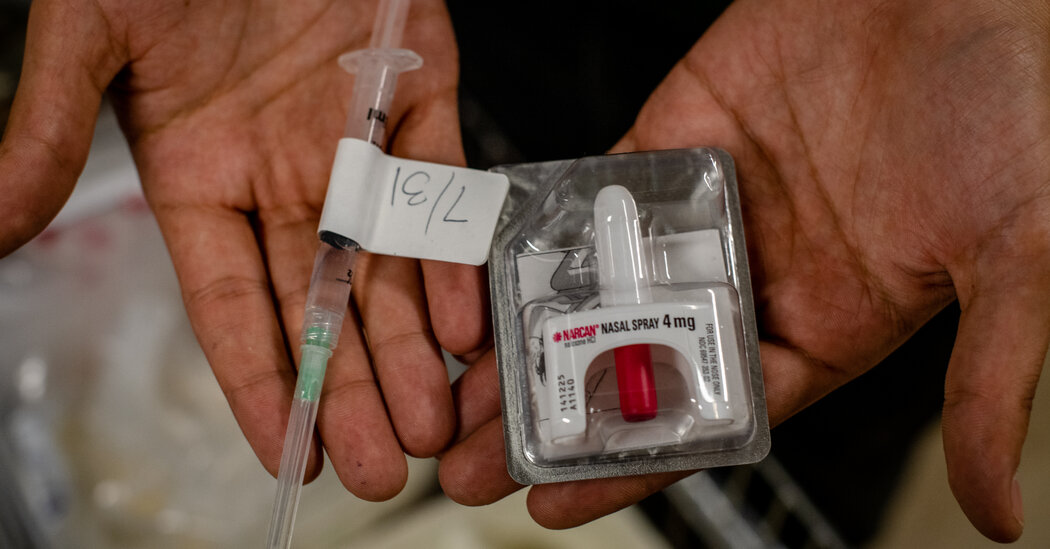Federal officials have celebrated a striking drop in drug overdoses across the country. But state-level data shows that Black people are suffering significantly worse outcomes than white people.
Overdose deaths across the country decreased by more than 12 percent between May 2023 and May 2024, according to new federal data, a major development in the nation’s efforts to combat the effects of fentanyl. The decrease continued a trend observed in recent months, and was the largest on record, the White House said last week.
But a new analysis from Georgetown University researchers tells a more complicated story about a health crisis still claiming about 100,000 lives every year. In 22 states that track drug overdoses by race and ethnicity, the number of fatal overdoses among Black Americans typically increased between 2022 and 2023, while deadly overdoses among white Americans often decreased, the researchers found.
The findings reveal a continuation of what federal and state health officials have described as a two-track epidemic, with white Americans experiencing better outcomes and Black Americans struggling to keep up. As overdose deaths rose to record levels in recent years, rates among Black and Native Americans were higher. But the more recent data goes further in showing how sharply the experiences of drug users have diverged by race.
In Arizona, for instance, fatal drug overdoses among white people decreased by more than 2 percent, while overdoses among Black people increased by roughly a third. In Michigan, deadly drug overdoses among white people decreased by 12 percent, and increased among Black people by 6 percent. In Maine, fatal overdoses dropped by about 20 percent among white people but rose by over 40 percent among Black people.
In states where decreases were found in both groups, they were typically smaller for Black Americans. In states where increases were found in both groups, they were often greater for Black people. And in places that tracked overdoses among Native and Hispanic Americans, similar disparities arose.
Drug policy experts said that the new data underscored how public health strategies for drug addiction were still being applied unevenly, with deadly consequences. Naloxone, the overdose-reversing medication, has been harder to find for some Black Americans, as have addiction treatments.
